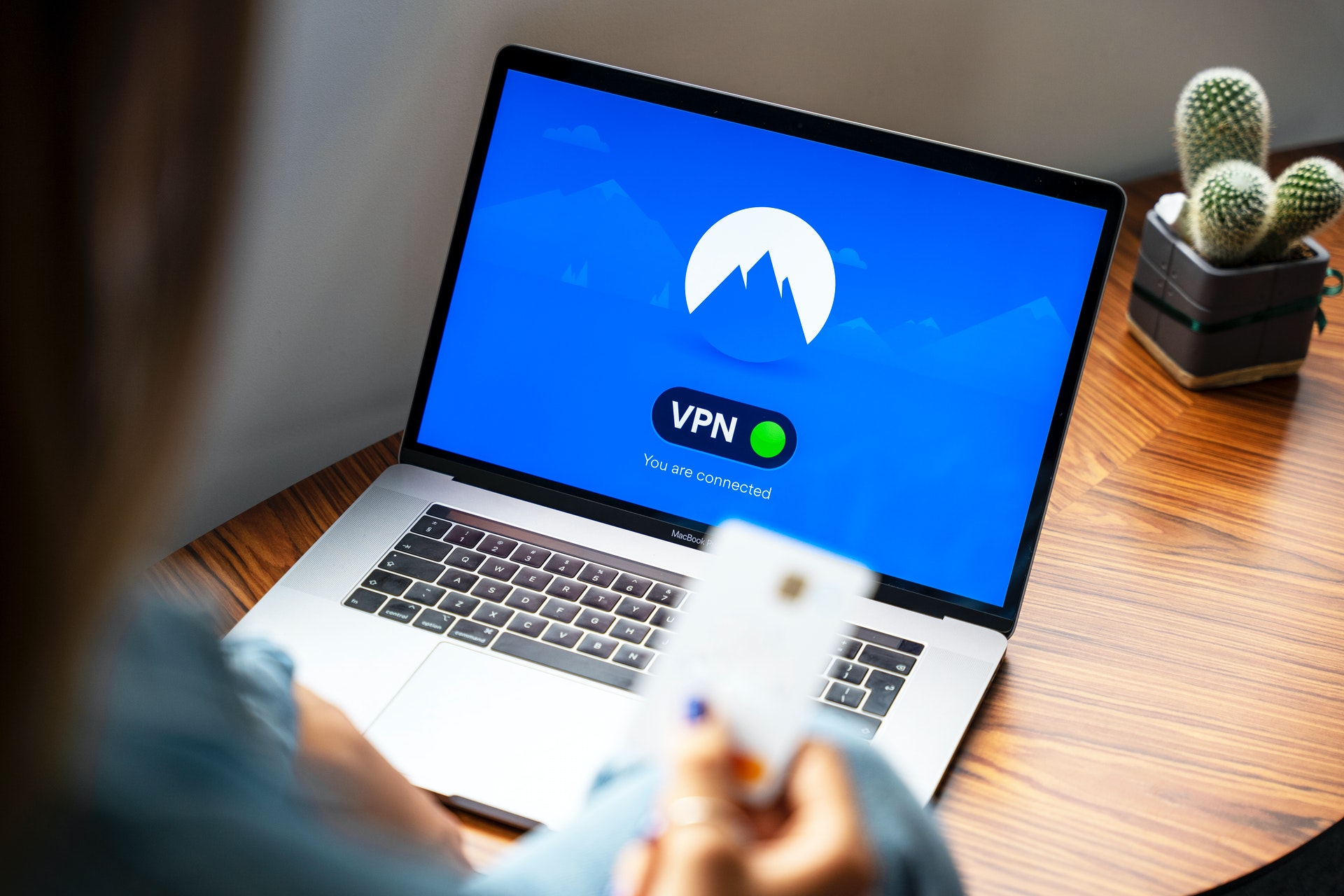
Cyber security is a critical priority for all organisations. While some face higher risks than others, every business is vulnerable without proper protection. With the growing reliance on digital systems, AI solutions, and automation software, cyber threats are more prevalent than ever. Here, we explore essential cyber security strategies that businesses can implement to safeguard against potential threats.
Identifying Your Vulnerabilities
Cyber threats can emerge from multiple sources, making it crucial to understand your organisation’s weak points. Conducting a cyber security audit through a trusted partner is an excellent way to assess your current security posture. This audit will help you identify vulnerabilities in your IT infrastructure, software, and systems – especially among your employees, who often represent the biggest risk factor.
Building a Strong Cyber Security Culture
Human error is responsible for a significant proportion of data breaches, with reports suggesting that most incidents result from mistakes made by employees. Therefore, user awareness training is one of the most effective ways to enhance your security. Implementing this across your organisation can be a cost-effective solution, empowering employees with the knowledge to recognise and avoid threats. By fostering a strong cyber security culture, you’ll create an environment where vigilance is second nature.
Securing Remote Work
With the rise of remote and hybrid working models, businesses face new cyber security challenges. Implementing remote solutions such as hosted desktops, secure cloud servers, and VoIP phone systems can enable employees to work securely from anywhere. Training staff to follow best practices in these areas is crucial to preventing remote work from becoming a security weak point.
Enhancing Access Control Measures
Effective access control is vital to protecting sensitive information. Implementing strategies such as multi-factor authentication (MFA), robust password policies, and regular reviews of access permissions can greatly reduce your risk. Limiting employee access to only the resources they need ensures that, if a breach does occur, the damage can be contained.
Keeping Software Up to Date
Outdated software is a common entry point for cybercriminals. Regularly updating and patching your systems and applications is essential to close these vulnerabilities. Automating updates can ensure that all systems remain current, protecting your organisation from potential threats.
Implementing Firewalls and Endpoint Protection
Firewalls serve as a crucial defence between your internal networks and external threats. Paired with endpoint protection software, which monitors and responds to potential risks on individual devices, these tools form a strong line of defence. Together, they provide essential protection against external cyber attacks.
Prioritising Data Encryption and Regular Backups
Encrypting sensitive data, both at rest and in transit, is a vital security measure for modern businesses. In addition, regular data backups are essential in ensuring business continuity. In the event of a breach or data loss, having backups in place will allow you to recover quickly and minimise disruption.
Planning for Incident Response
Even with robust cyber security measures in place, breaches can still occur. Preparing an incident response plan is key to reducing the impact of a cyber attack. This plan should outline steps for containing the breach, assessing the damage, notifying stakeholders, and recovering lost data.
Ensuring Compliance with Data Protection Regulations
Compliance with regulations such as GDPR is not only a legal obligation but also a cornerstone of customer trust. Safeguarding personal data is a fundamental aspect of cyber security. Regularly auditing and updating your compliance practices will ensure you stay ahead of regulatory changes.
Collaborating with Cyber Security Experts
Managing cyber security can be overwhelming for many organisations. Partnering with a specialist provider gives you access to expert knowledge, advanced tools, and ongoing support. This collaboration can significantly strengthen your organisation’s overall security posture and provide peace of mind.
–
Cyber security is an ongoing process, not a one-time solution. By implementing these strategies, businesses can mitigate the risks posed by ever-evolving cyber threats. Strong cyber security practices not only protect your data but also build trust with customers and stakeholders, helping to secure the future success of your organisation.
ServerExperte is a trusted IT partner, working with organisations across sectors to develop effective cyber security strategies.
Get in touch with ServerExperte to learn how we can help safeguard your business from cyber threats.

If you’re making the switch from a traditional phone system to VoIP (Voice over Internet Protocol) for your business, it’s crucial to choose the right provider. Opting for the correct VoIP provider ensures a smooth transition without any disruptions in communication with your customers and suppliers. A failed VoIP installation can result in wasted time and increased financial strain, causing unnecessary headaches for your business.
Verified and Tested Solutions
We only select VoIP systems that are verified and tested, ones that we use ourselves. This guarantees that our customers receive the expected features and quality. Our user-friendly interface ensures that your team can efficiently use the phone system throughout the day, leading to improved reliability and quicker access for your clients.
Effortless Installation
A successful installation is paramount, and a reliable VoIP provider will follow a clear roadmap to ensure a smooth setup. By setting realistic expectations and providing effective timelines, they minimise disruption to your communication while ensuring a pain-free transition. With providers like ServerExperte, known for quick setups, you’ll have access to a wide range of phone numbers and the option to retain your existing ones.
Efficient Ongoing Maintenance
Selecting the right VoIP provider reduces the hassle of managing your phone systems over time. Unlike low-quality providers, reputable ones actively monitor your systems for seamless operation, often resolving issues proactively before they impact your business.
Cost-Effective and Flexible
VoIP systems are intuitive and manageable, making them appealing to tech-savvy individuals. With no line rental charges and cheaper call rates compared to traditional ISDN lines, VoIP offers significant cost savings. Additionally, calls between users within your organisation are often free, even for remote workers.
Investing in the Future
The current trend of remote work has accelerated the adoption of internet-hosted solutions like VoIP. With the traditional ISDN phone system set to be deprecated in 2025, investing in VoIP now ensures long-term benefits and futureproofing for your business. By partnering with a reputable VoIP provider, you’re not just upgrading your IT infrastructure; you’re investing in the sustainability and growth of your business.
Seize the Opportunity
Now is the time to embrace VoIP solutions, especially with the growing trend of remote work. By transitioning sooner rather than later, you mitigate future expenses and complexities. A reliable VoIP provider offers all the benefits of a VoIP system without the hassle, making it an ideal solution for businesses looking to adapt to the evolving landscape of communication. To learn more about how VoIP can enhance your remote work setup, speak to our experts here.

When it comes to your IT, having reliable technology is non-negotiable. While IT support can address immediate issues, organisations need a well-thought-out approach to managing their hardware. This is where the expertise of an IT procurement partner becomes invaluable.
An experienced IT procurement partner not only helps you find the right solutions for your needs but also simplifies the complexities of vendor negotiations, warranties, and cost optimisation.
Here are some key ways an IT procurement partner can make a difference:
Expert Guidance and Insights
Collaborating with an IT procurement partner grants access to in-depth industry knowledge, ensuring you stay ahead with the latest hardware innovations.
ServerExperte’s procurement specialists maintain a strong focus on emerging trends and technologies. With their expertise, they can recommend the most suitable hardware options to match your organisation’s unique requirements and long-term objectives.
Instead of relying on in-house resources that may lack specialised expertise, a procurement partner assesses your existing infrastructure, predicts future needs, and identifies hardware solutions that support your growth. They also provide advice on compatibility, performance benchmarks, and cost-efficiency, helping you make informed investment decisions.
Strengthening Cyber Security
Security should be a top priority in any IT procurement process. A knowledgeable partner ensures that the hardware and software acquired meet rigorous security standards. This includes choosing devices compatible with your existing security framework and software with advanced protective features, all while ensuring compliance with industry regulations.
Moreover, an IT procurement partner helps your organisation maintain regulatory compliance. For instance, certifications such as ISO 27001 or Cyber Essentials may be jeopardised by outdated or unsupported devices. By keeping track of your hardware lifecycle, they can advise on replacements before non-compliance becomes an issue.
Simplifying the Procurement Journey
Handling procurement internally often involves juggling multiple suppliers, comparing pricing structures, and negotiating terms. A dedicated IT procurement partner like ServerExperte streamlines this by managing every stage, from vendor selection to delivery.
With established supplier relationships and market insights, ServerExperte can secure the best equipment at competitive prices and often arrange faster delivery than internal teams could achieve independently.
Delivering Cost Savings
Effective cost management is another significant benefit of partnering with a procurement expert. Leveraging established supplier relationships, procurement teams often unlock discounts and favourable terms that aren’t typically accessible to individual businesses.
In addition, an IT procurement partner can assist with strategic planning. For example, ServerExparte’s NOC services can identify signs of hardware deterioration, giving you the opportunity to plan replacements proactively. This avoids last-minute purchases that could be both costly and suboptimal.
Aligning Technology With Business Goals
IT procurement isn’t just about purchasing hardware; it’s about ensuring that investments align with your organisation’s strategic objectives.
Outdated or inadequate technology can hinder progress. A procurement partner collaborates with you to understand your business goals, ensuring the hardware and software you acquire today will continue to support your operations in the future.
Whether it’s upgrading infrastructure, equipping teams with role-specific tools (e.g., high-performance laptops for creative professionals), or facilitating a major digital transformation, a procurement partner ensures that your investments are aligned with your vision.
Why Choose ServerExperte for IT Procurement?
Partnering with ServerExperte as your IT procurement expert offers unmatched benefits. With access to an extensive network of suppliers, including exclusive options unavailable to the general public, and partnerships with leading licensing providers, we deliver cost-effective and tailored solutions.
Through our IT roadmaps, we remove the uncertainty from hardware investments, enabling your organisation to achieve its technology objectives efficiently and securely.
If you’re looking for expert support with IT procurement, get in touch with us today to explore how we can assist you.

Whenever you’re browsing the Internet, it’s important to consider what data you’re giving away. Every site you visit and the actions you take on it is likely being recorded by someone, whether that’s your Internet service provider (ISP) or the site itself. And that data doesn’t always exist in isolation. Advertisers benefit from building a picture of your Internet usage, and how it reflects your habits, likes and dislikes.
Uses of your data can also be more malicious than advertising, however. Not everyone wants their browsing habits to be recorded, whether for the basic principle of privacy, the safety of financial transactions, or because that information could be weaponised against them, such as revealing their sexual or gender identity. Thankfully, there is a way to help protect your identity and stay safer online – a virtual private network.
A virtual private network (VPN) is a service for people who want to cloak their identities online. If you’re already aware of VPNs, it’s likely because of their use as a tool to get around geoblocking, where content on platforms such as Netflix is restricted to certain regions. Commercial VPNs allow you to appear as though you are browsing from a different region, tricking the site in question into providing content from that region. While this is far from the only use of a VPN, it does give you a basic idea of how they work.
Most VPNs essentially add a step to the normal process of browsing the internet. Normally, you communicate directly with a server: you send information to the server (i.e. a request to do something), and it responds by sending information back. This data may be encrypted, depending on the nature of the connection, but it can be intercepted, and there’s no question as to who’s sending the request.
A VPN adds a middleman. When you browse a site – or connect to your work computer or server – you send the request to the VPN server, and it checks your details, before forwarding it to its destination. This not only guarantees your identity, but makes your request appear to come from the VPN, rather than you, hiding your identity. The need for authentication and the encryption of your data also ensures that your browsing data cannot be understood, even if it is successfully intercepted.
Many people are understandably cautious about new technologies, and may not trust in their own ability to use them. Thankfully, most VPNs are extremely simple to use. Some VPN operators will provide their own software, while others use open source software such as OpenVPN. In all of these cases, the most you will normally have to do is open the software and click a button to run the VPN. It will then open a secure connection to the VPN server, which will remain open until you choose to turn the VPN off.
Commercial VPN apps will typically allow you to change the VPN you are connecting to to one in a different region, allowing you to bypass region restrictions, or to see different language or regional versions of a website, such as for testing purposes. Many VPNs also offer their apps on a range of devices, allowing you to stay secure when using mobile browsers or apps as well as your desktop or laptop computer. Business VPNs by contrast tend to be for a single purpose: connecting to your remote workstation or work server.
Commercial VPNs add a layer of security to all of your online interactions. They help to secure your browsing even when you are on an unsecured network, such as an open WiFi network. These free access points in cafes, airports and other public spaces are useful, but the lack of security can make them vulnerable to malicious actors, and lead to your data being compromised. Using a VPN on these networks helps to shield your data from prying eyes, and keep you safe from cybercrime.
Business VPNs allow you to make secure remote desktop connections. Were someone to compromise your connection to a work computer, it could cause significant damage, as they could use this to gain access to your workplace’s IT systems. Using a VPN helps to secure this connection, and prevent anyone from hijacking it or stealing your credentials, keeping your work systems and data safe.
This ability to connect safely to other computers or networks through a VPN can allow you to more easily scale your IT services. By accessing remote desktops or cloud environments with a VPN connection, employees can gain simultaneous access to key applications. Everything from email to resource intensive tasks such as video editing can be performed remotely from low spec hardware, with the only cost being the need to add more bandwidth.
Business VPNs come in two flavours: remote access and site-to-site. Remote access VPNs are primarily for remote workers to securely connect to their workstation, or your office’s local network. Site-to-site VPNs allow employees in the office to securely access the local networks of other offices. Remote access VPNs provide access from a single device, wherever that may happen to be, while site-to-site VPNs provide access from a single location.
A number of VPN solutions exist for businesses, which can either be delivered by your IT department or an expert IT services provider. Some VPNs are hosted on your work servers, while others are available in the Cloud. One of the drawbacks of a VPN that is deployed within your network is that it routes all traffic through that network, potentially slowing it down for other people who are using it. A cloud VPN allows you to connect from a remote desktop to the Cloud, giving you direct access to your enterprise cloud storage or software.
Using the Cloud in this way allows you to make a clear partition between your local network and your cloud deployment. Rather than putting your local network of office hardware at risk, that risk is transferred to the Cloud. Your cloud deployment can also be much more easily and affordably scaled than your local hardware, allowing you to offer VPN access and a range of cloud services to more people as the business grows.
–
However you intend to use them and whichever option you go with, it’s crucial that you mandate the use of VPNs for remote and inter-site communications.
Each insecure connection you make to your network or cloud deployment puts your cybersecurity at risk – something that a VPN can quickly and easily remedy. To discuss your cybersecurity protocols and how to implement a VPN, get in touch with ServerExperte today.